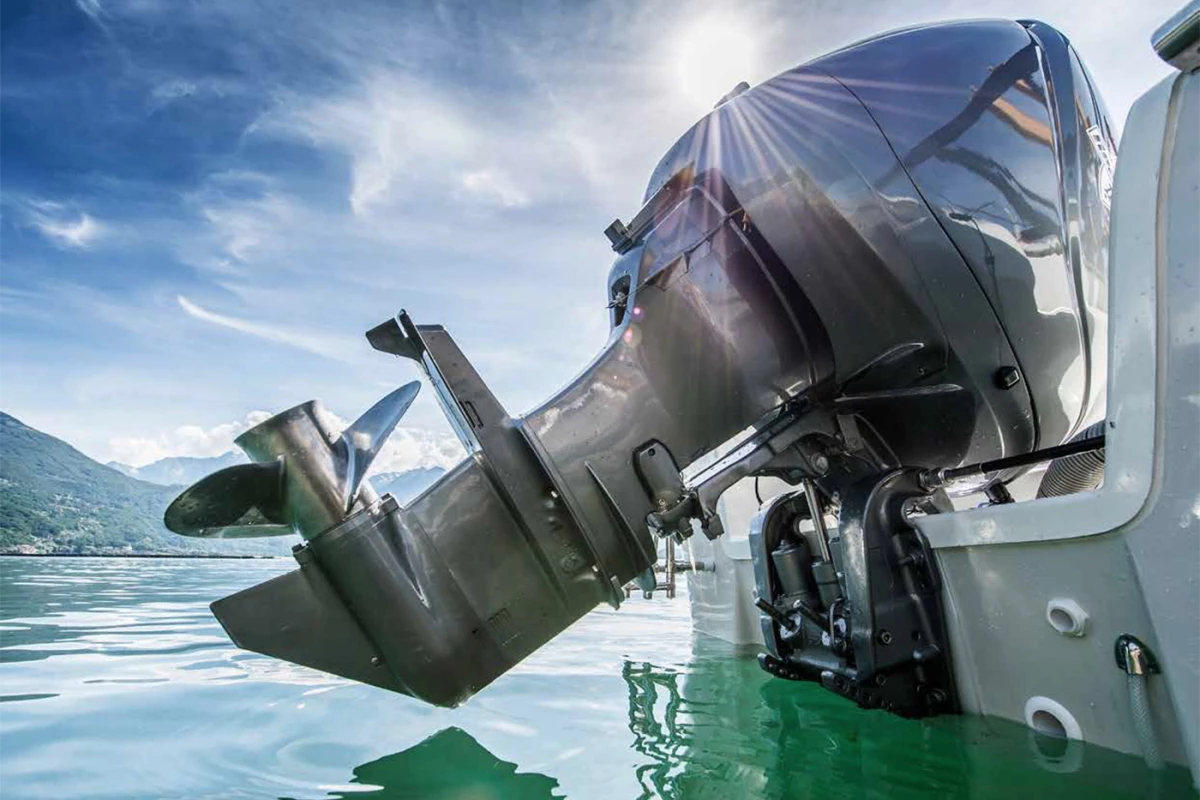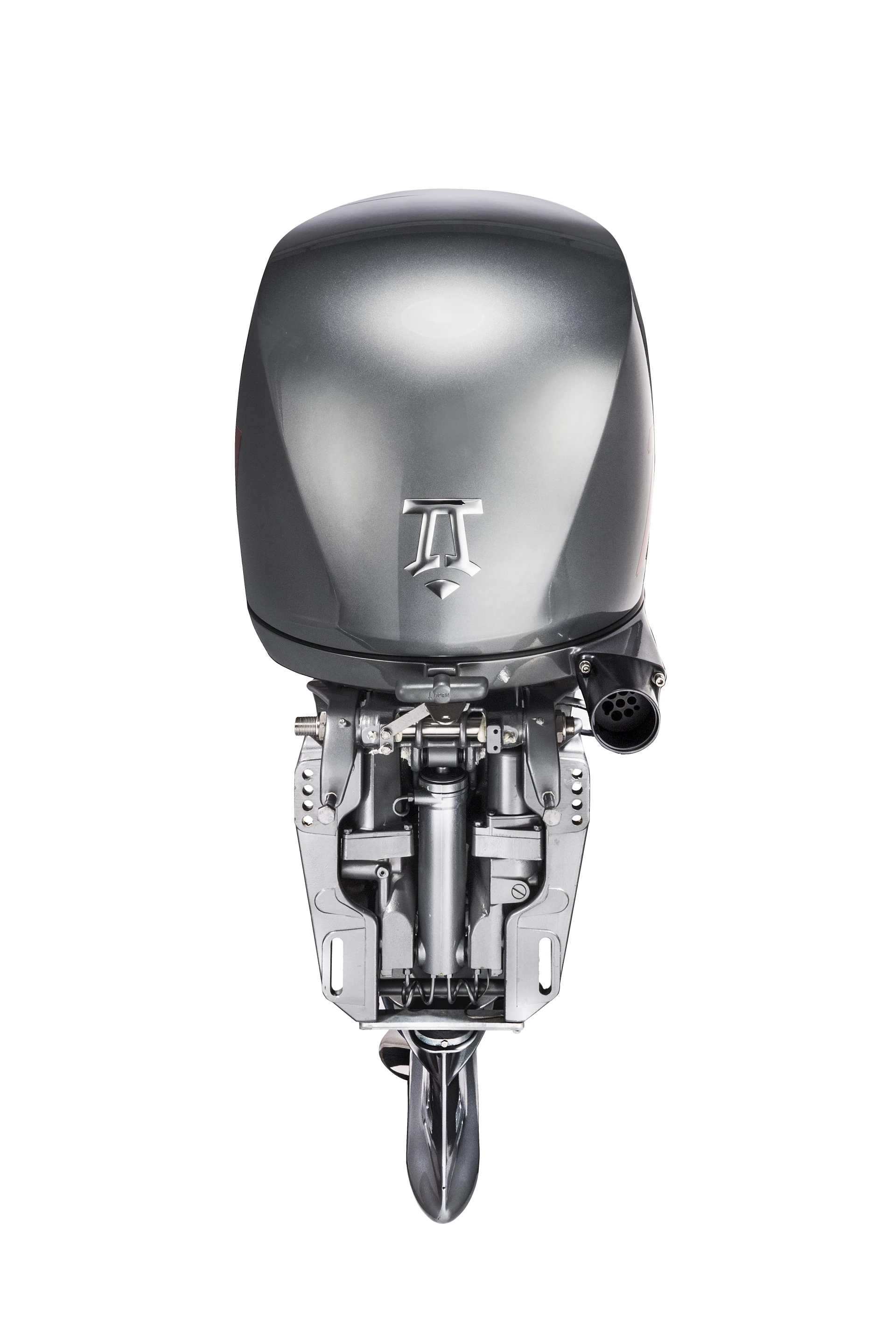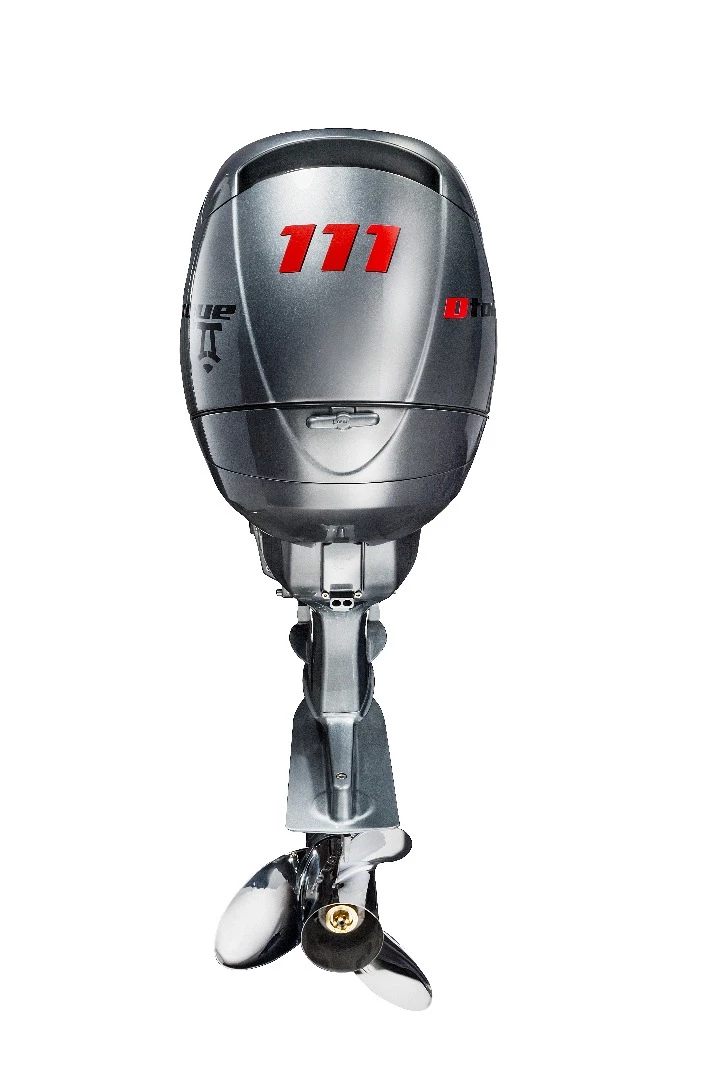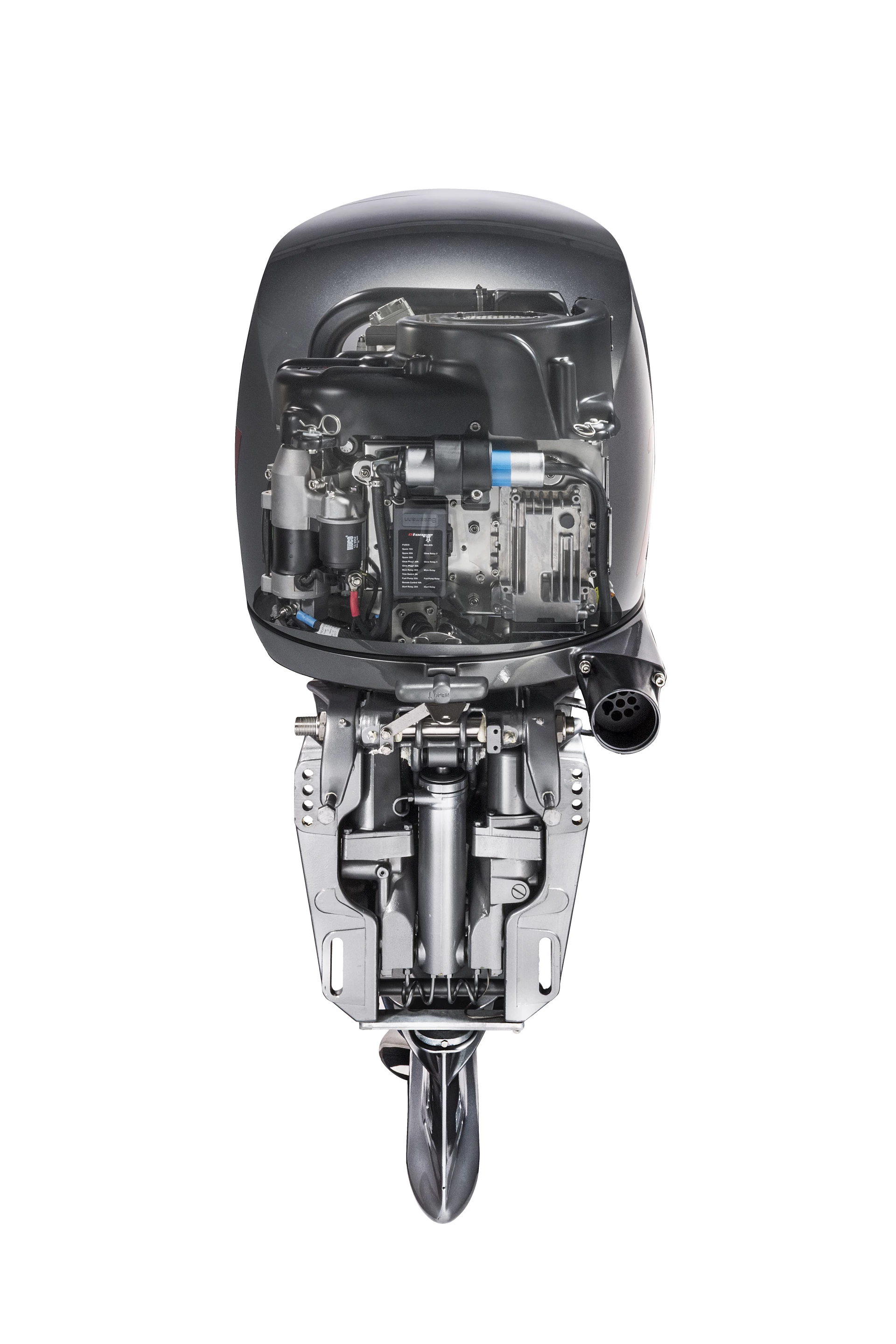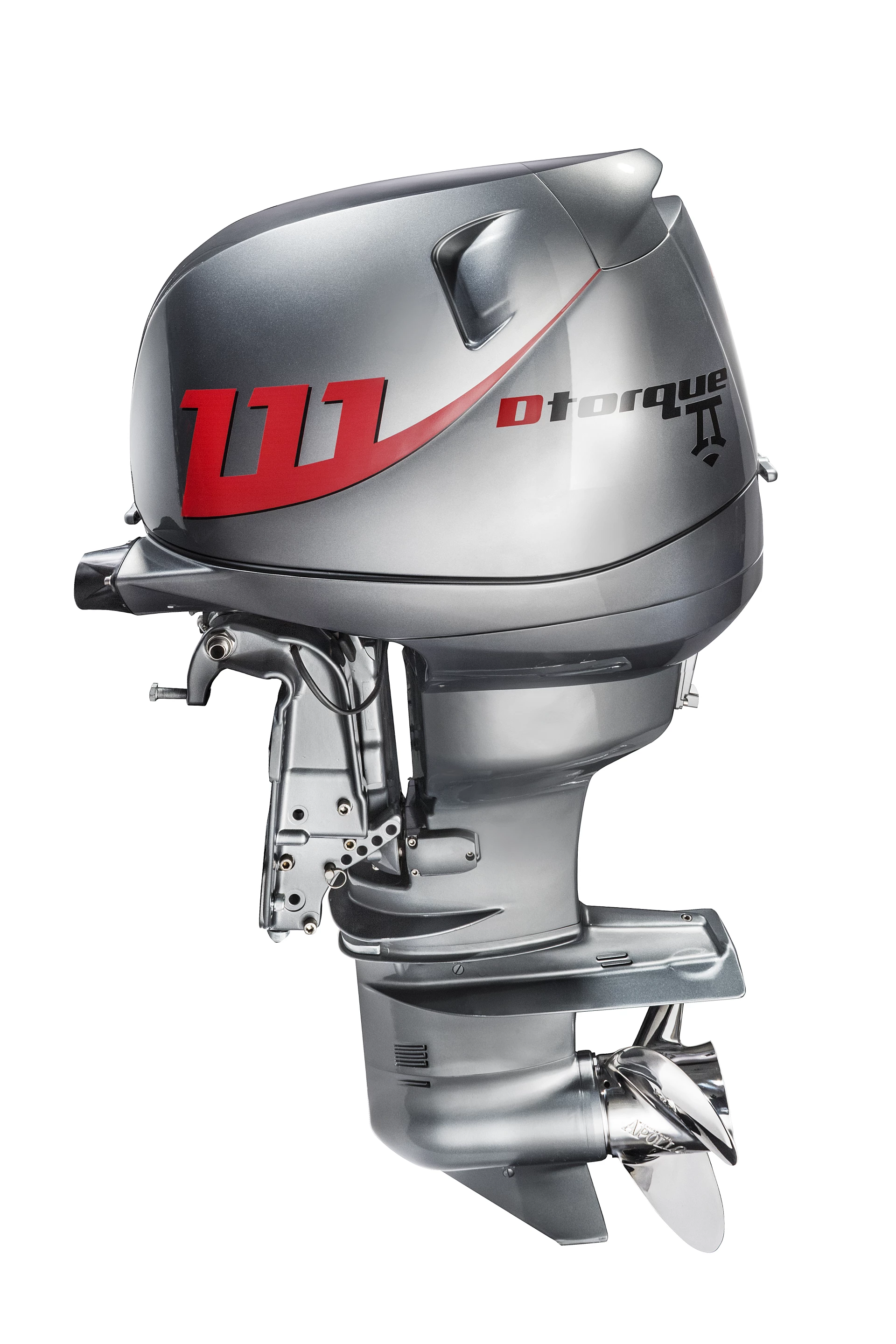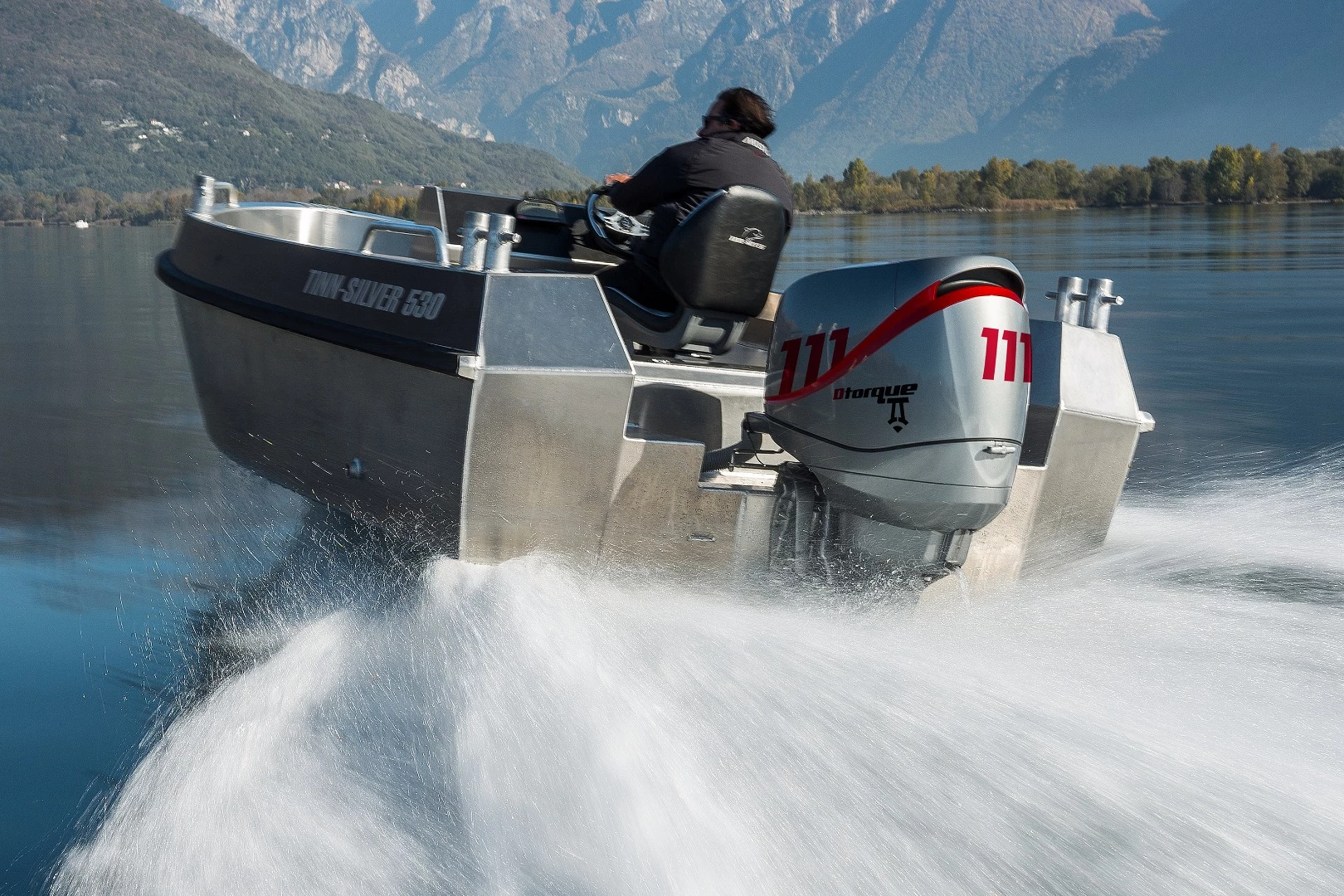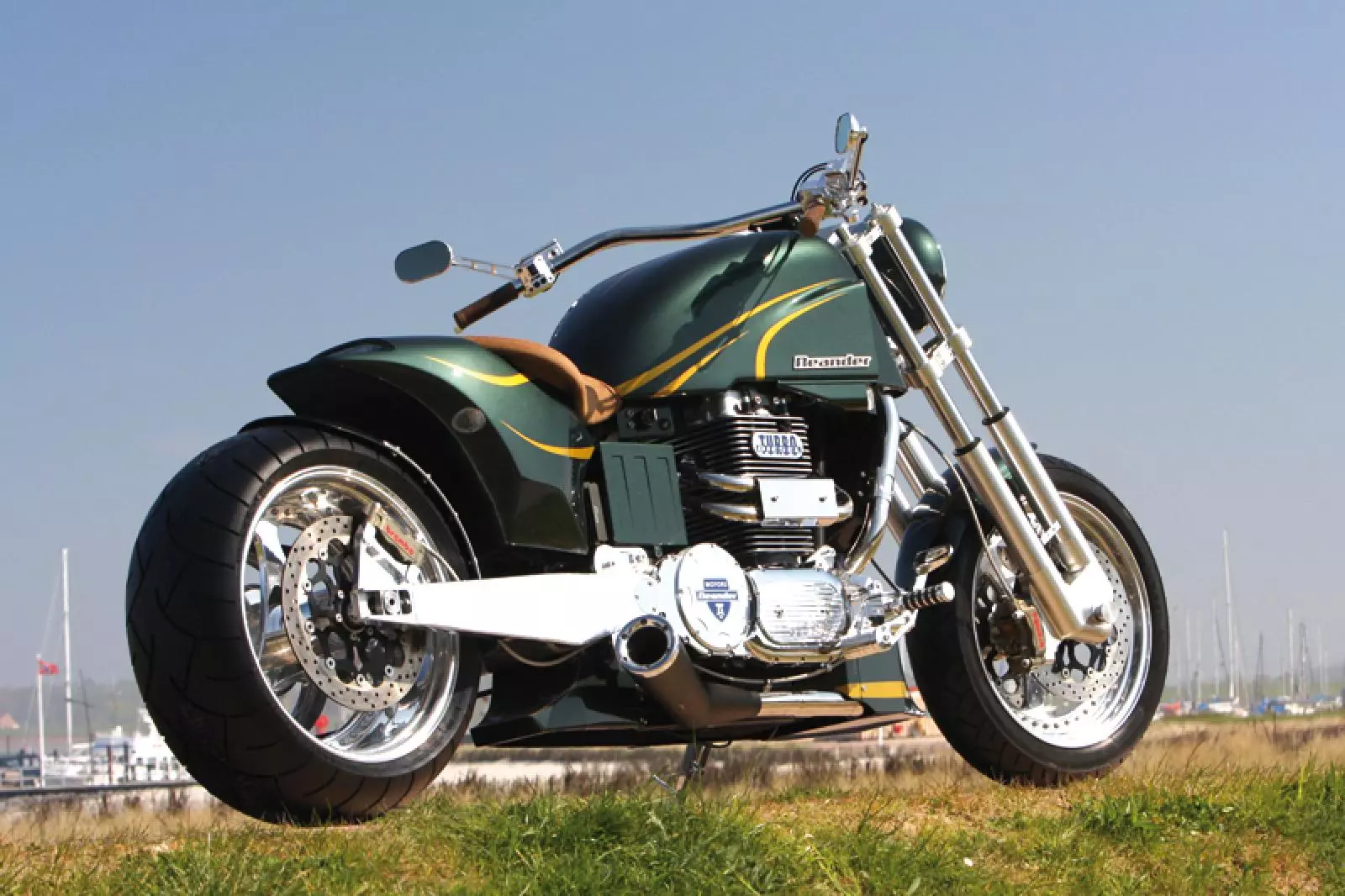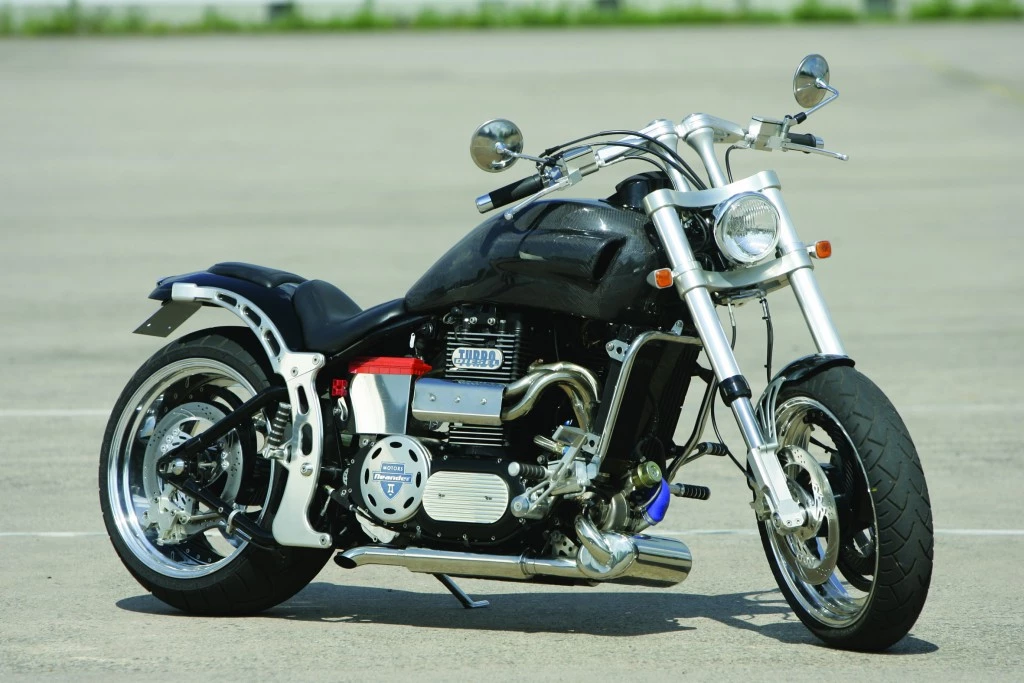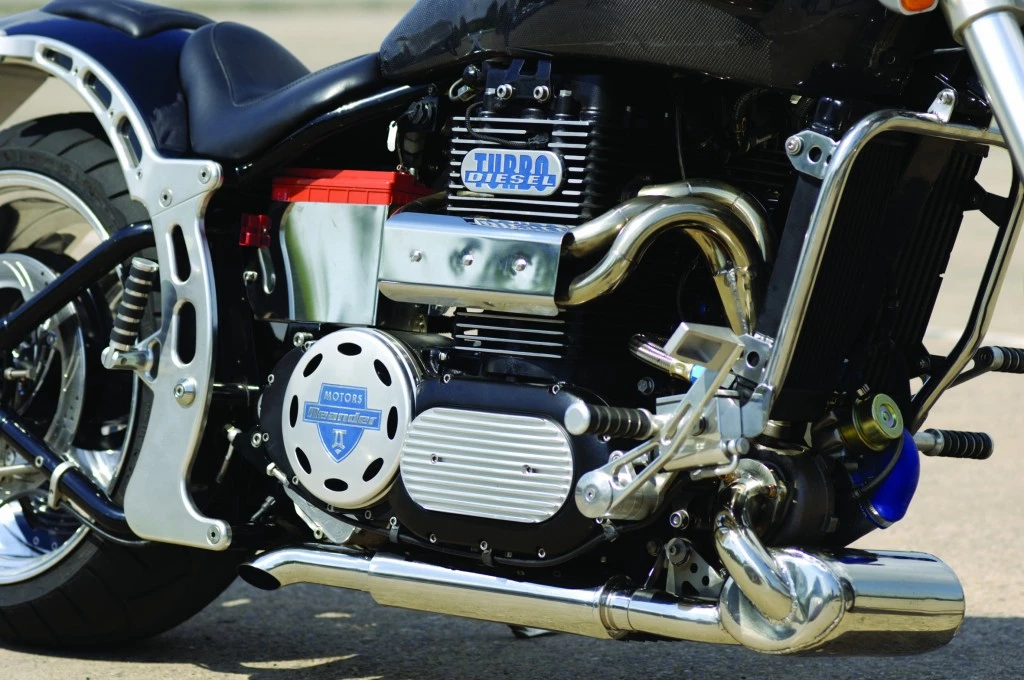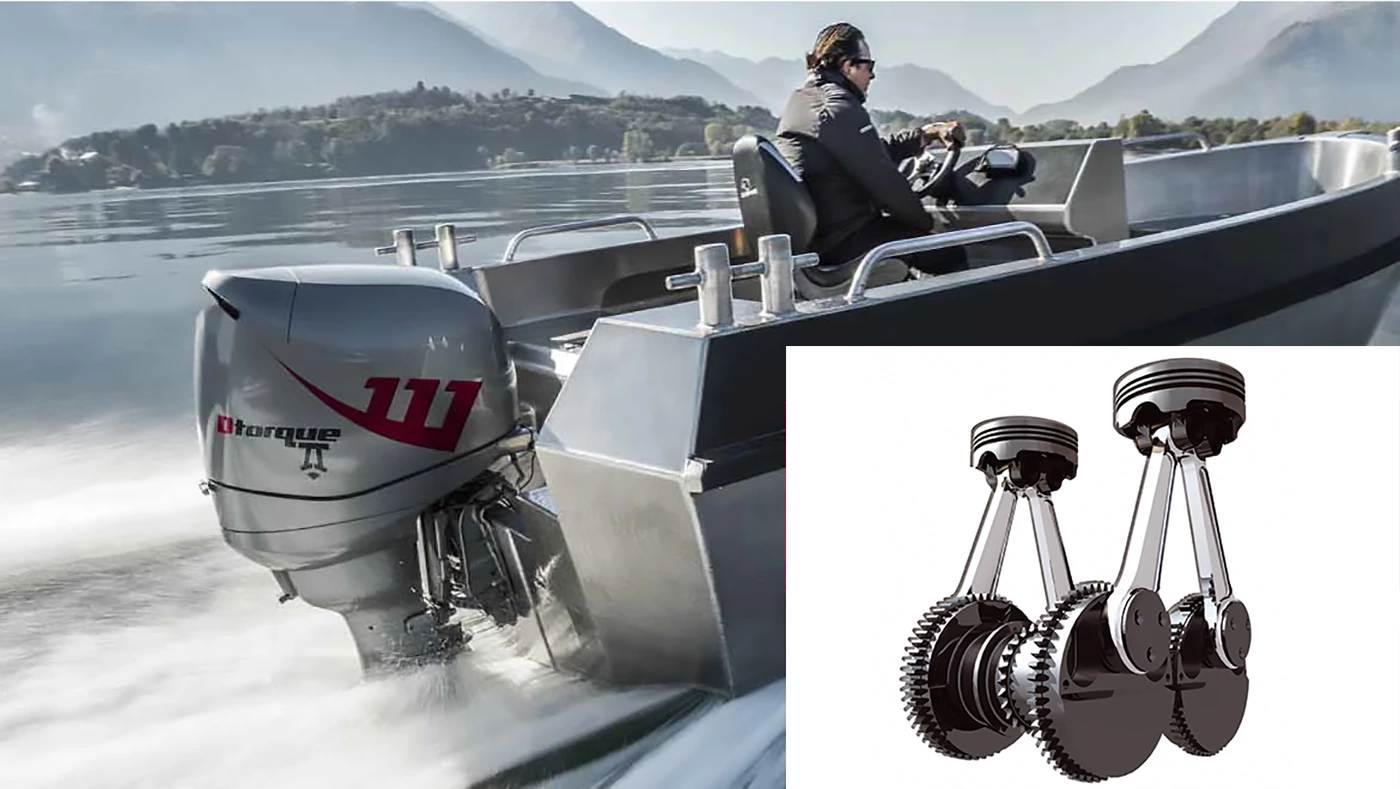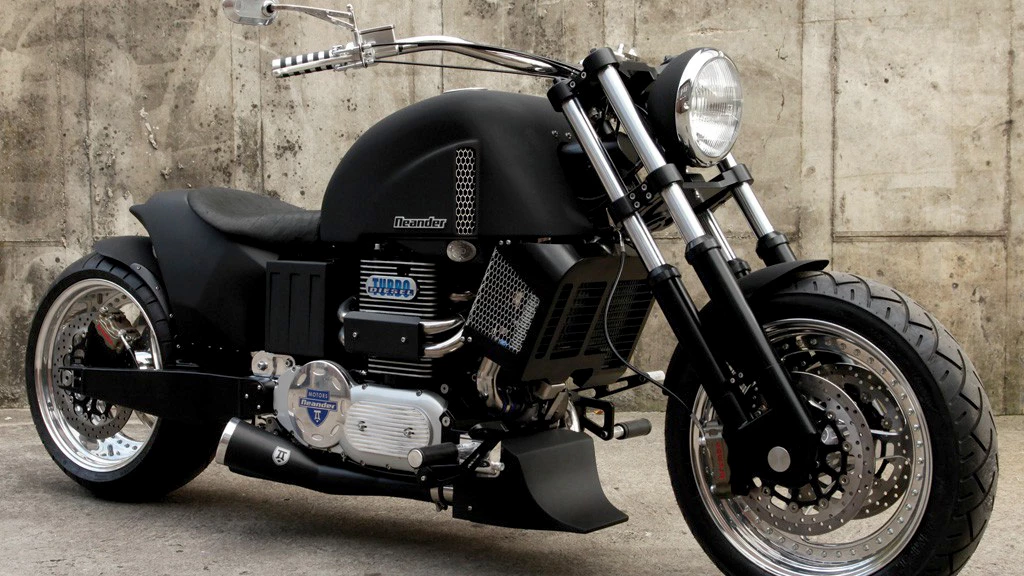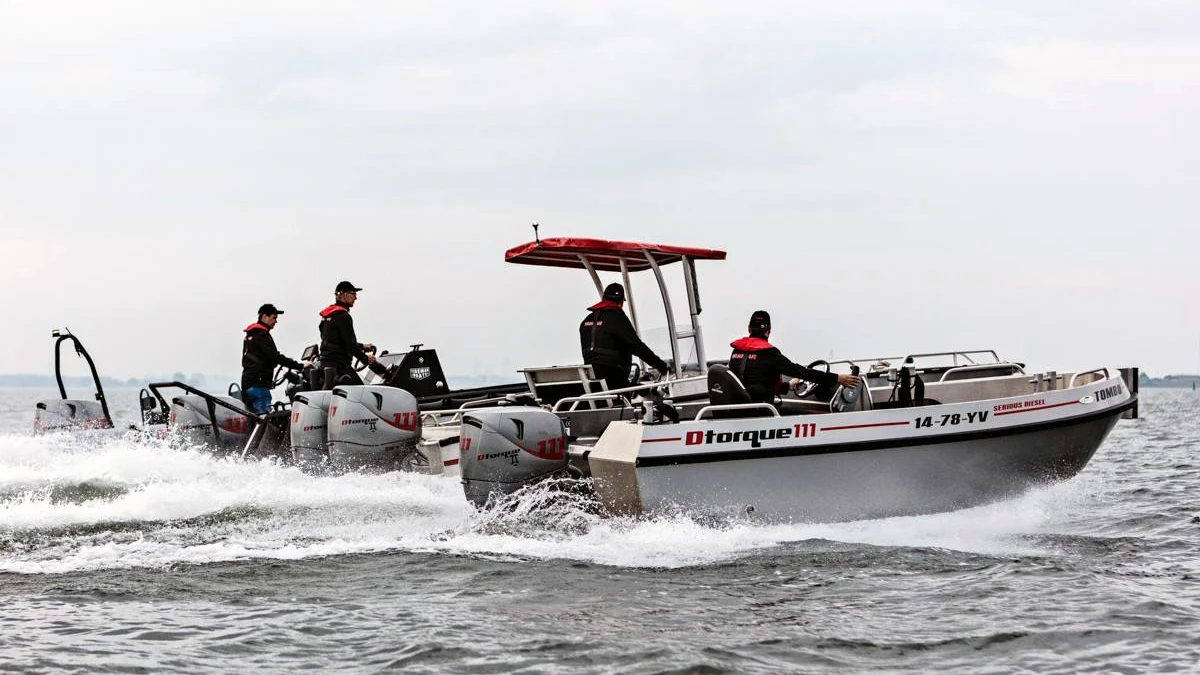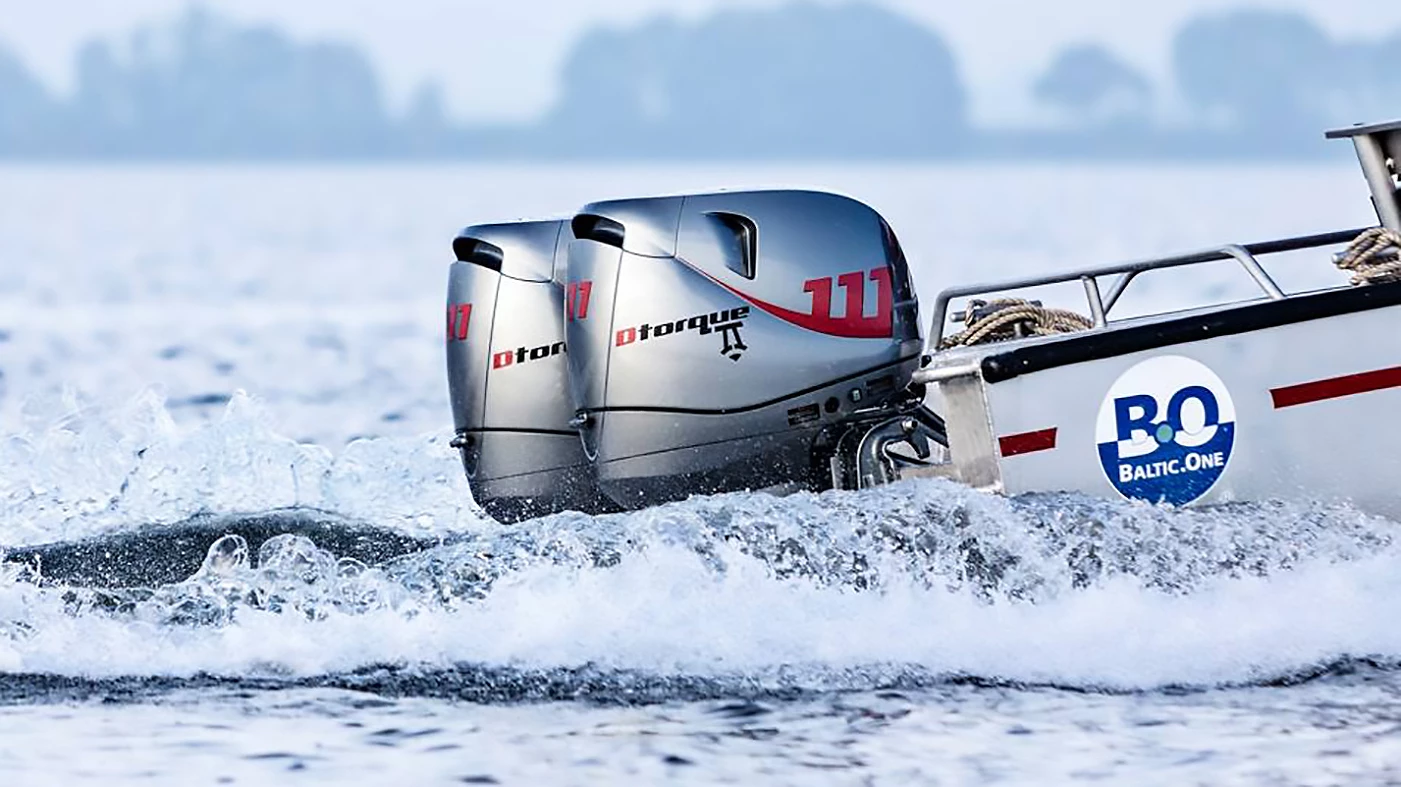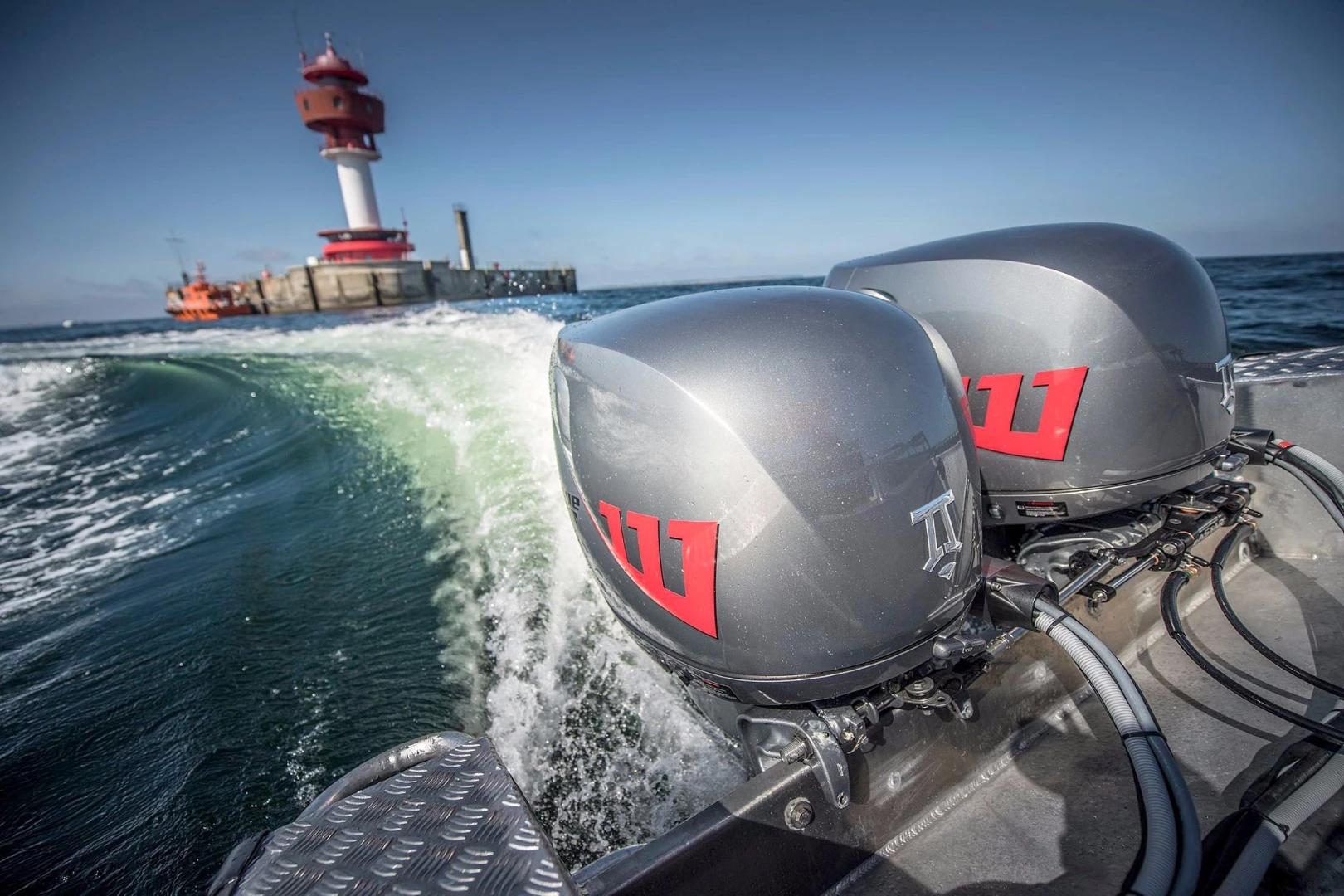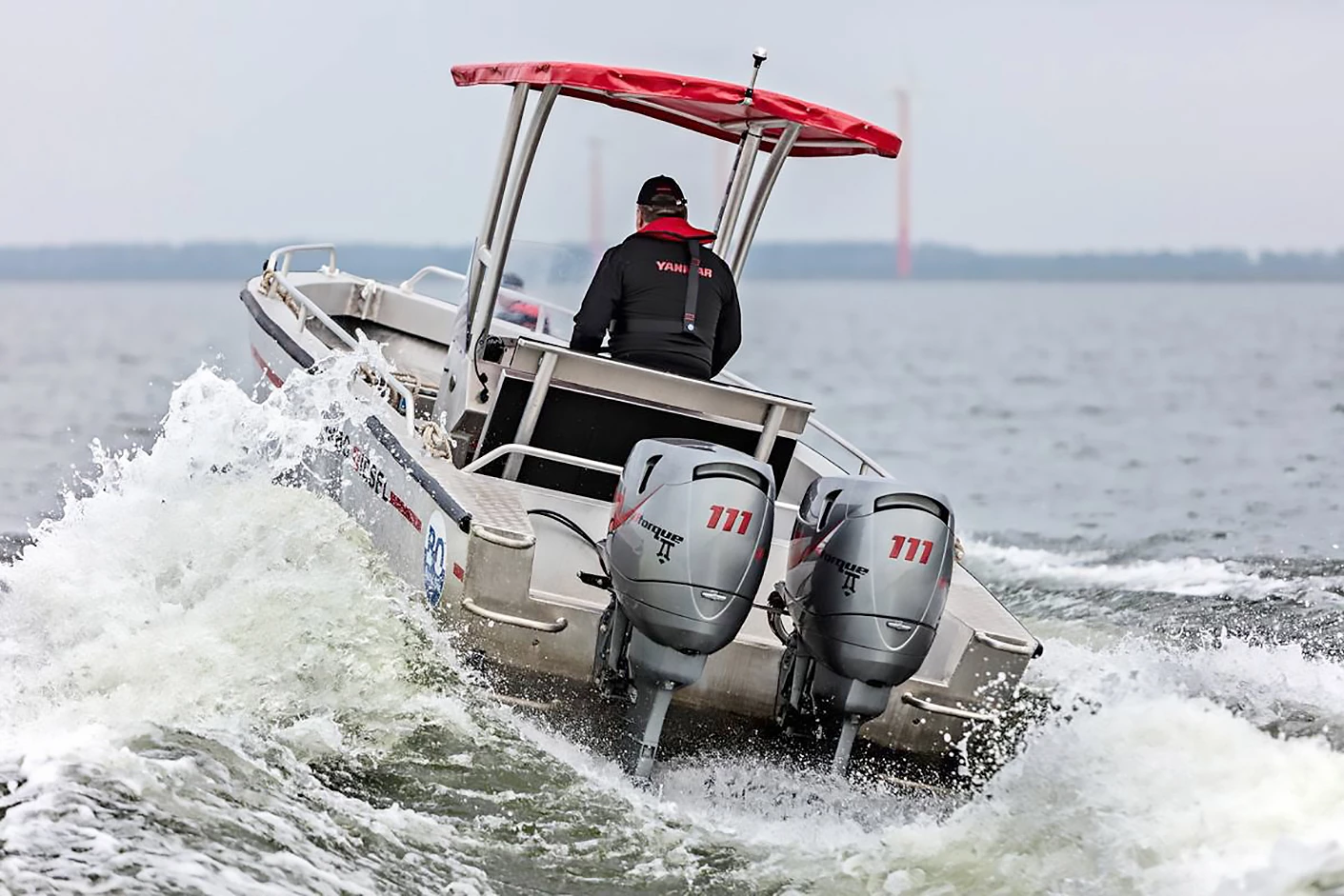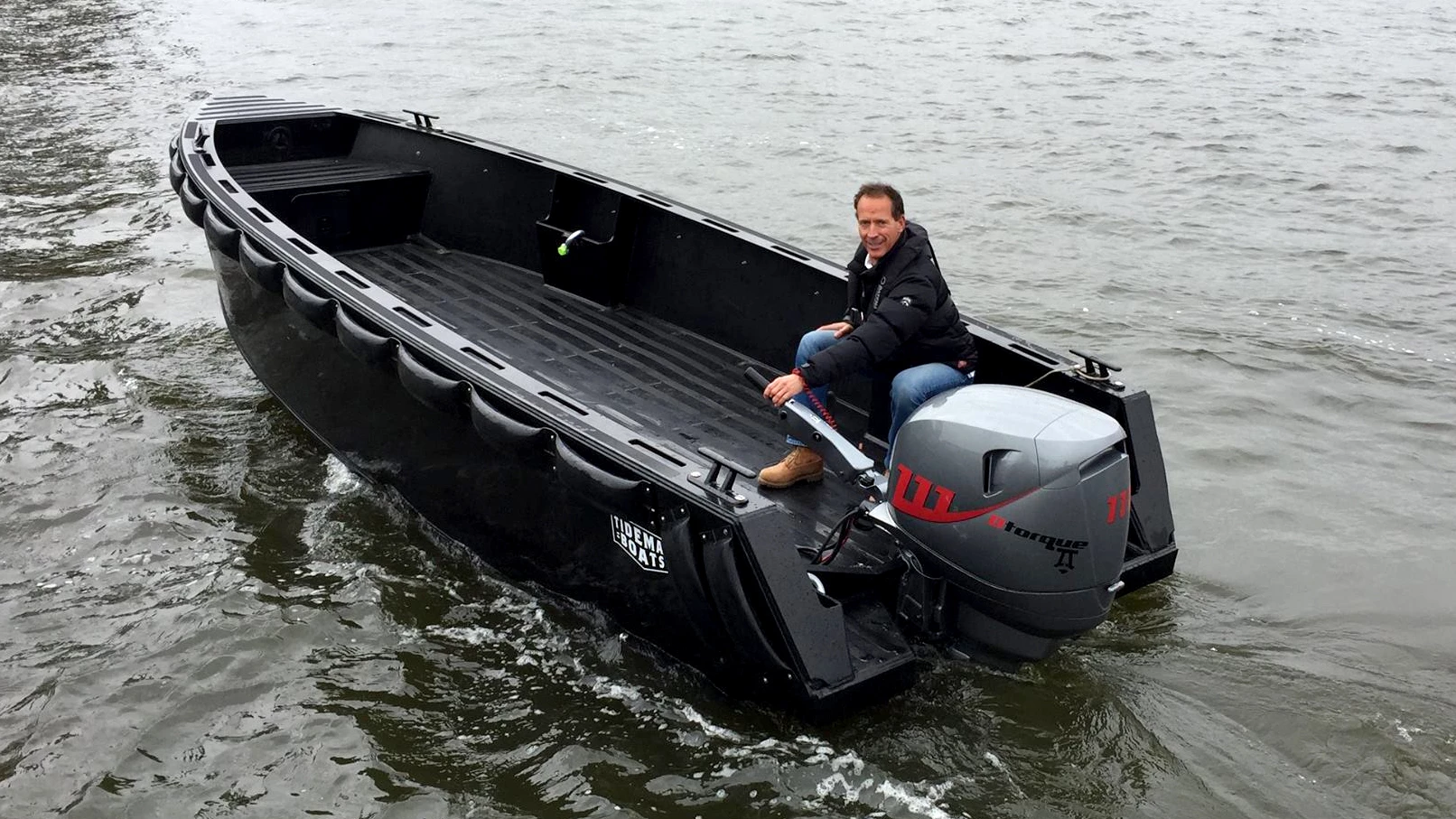Diesel has traditionally always been the fuel of the maritime industry, which makes the absence of a viable widely-distributed diesel outboard engine even more puzzling. Production of the 50 hp Yanmar Dtorque 111 turbo-diesel has begun and the world's first viable diesel outboard engine is on the market at last.
Yes, there have been precedents, most notably by Yanmar itself, but they are no longer produced and certainly not like this engine. The benefits of the unconventional new German-designed Neander-Shark engine compared to traditional petrol-burning outboard engines now seem overwhelming.
The Yanmar Dtorque 111 is lighter and more compact than petrol engines of similar capacity, has double the engine life, is much smoother, offers much better fuel consumption and running costs, produces significantly less toxic emissions, and with more torque much lower in the rev range, will thrust a boat onto the plane much quicker ... and that's before you consider the safety and ready availability of diesel fuel.
Pioneering non-traditional technology in any marketplace is fraught with peril, but it is a path that Germany's Neander Motors, based in the Baltic port of Kiel, has been forced to take in several markets, thanks to its two-conrods-per-piston, small-capacity diesel engines.
The benefits of the engine design are many, most significantly that the two-counter-rotating crankshafts offer perfect primary balance of the engine and a smoothness normally associated with six-cylinder petrol engines, not two-cylinder engines of any type, and particularly not diesel engines. With a lack of vibration inherent in the design, a Neander engine does not need the weighty vibration-absorbing robustness of a traditional diesel.
The announcement at the Monaco Yacht Show that Yanmar would begin global distribution of the Dtorque 111 outboard engines is a triumph for the Neander company and its long path to commercialization. The outboards will be produced by Austria's Steyr Motors.
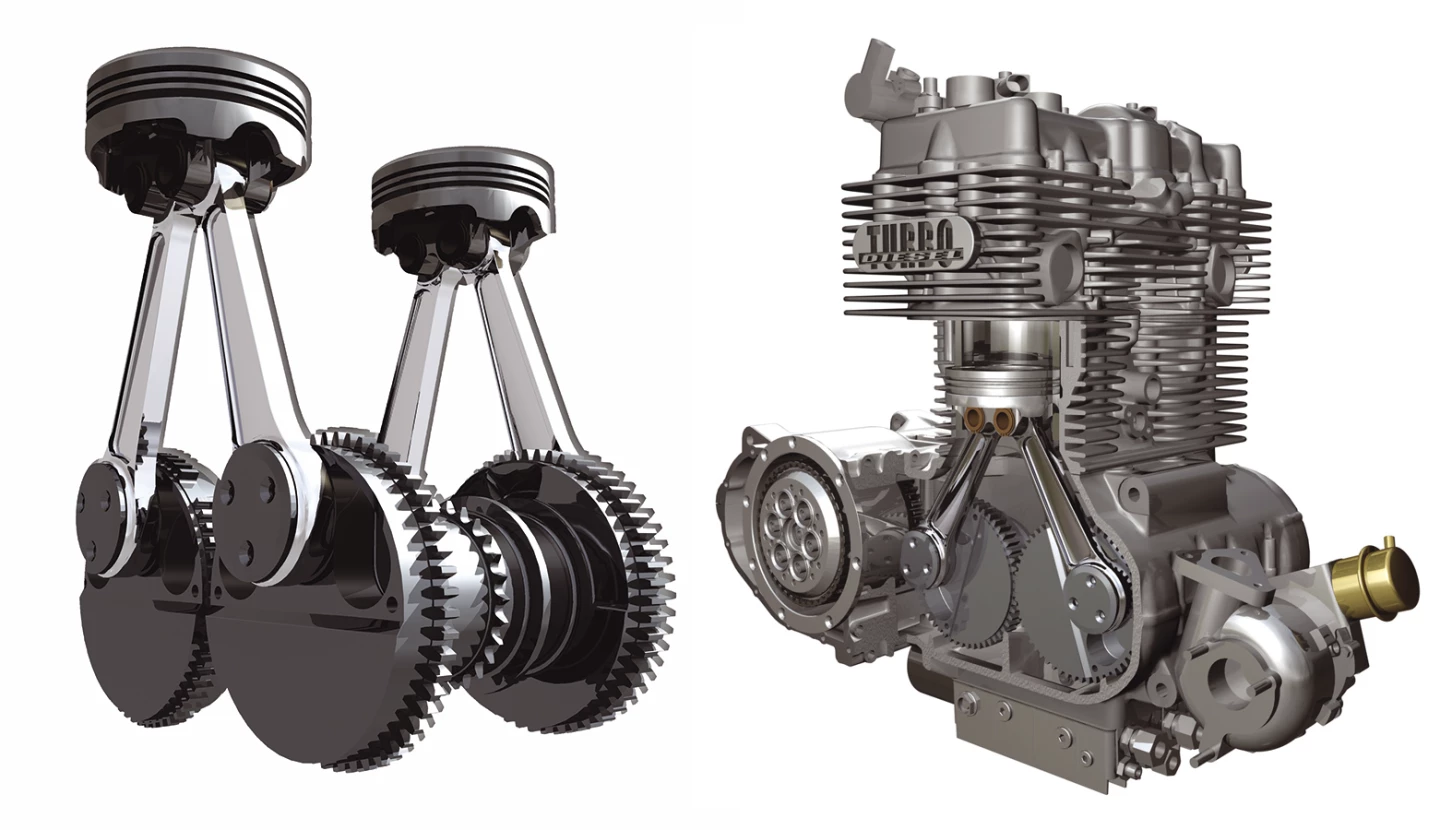
We first became aware of Neander-Motors more than a decade ago when its highly unorthodox diesel engine was demonstrated in a motorcycle.
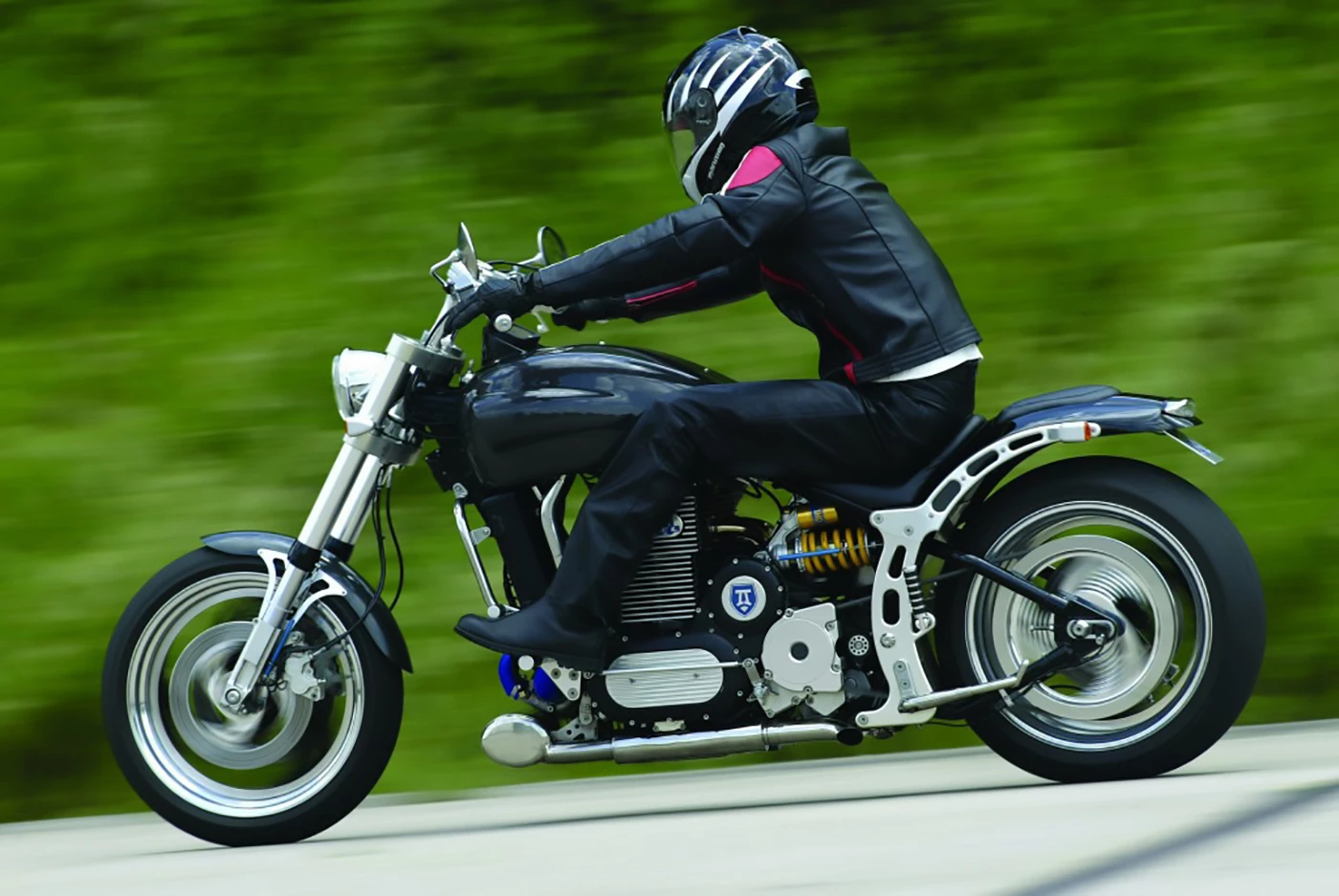
Sadly, the benefits of the design were lost among the eccentricities of the motorcycle marketplace where small unconventional manufacturers are plentiful. Now that the engine's primary virtues have been recognised and commercialised on a grand scale by Yanmar's global distribution, the Neander 1400cc turbocharged twin cylinder diesel might make a comeback too.
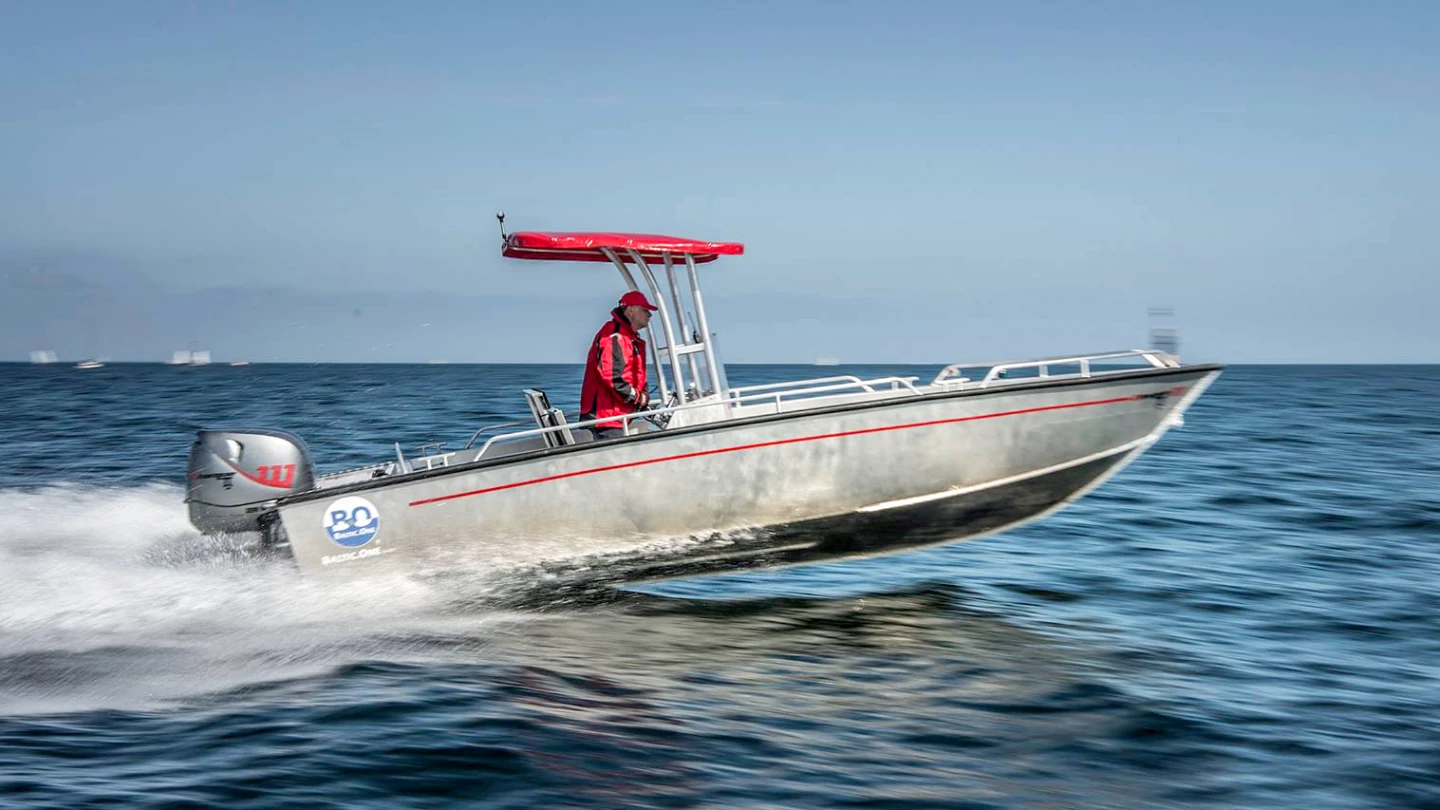
The compact Dtorque 111 will be a boon to the small workboat market where it's expected lifespan ofwell over 10,000 hours at least doubles that of any comparable outboard gasoline engine.
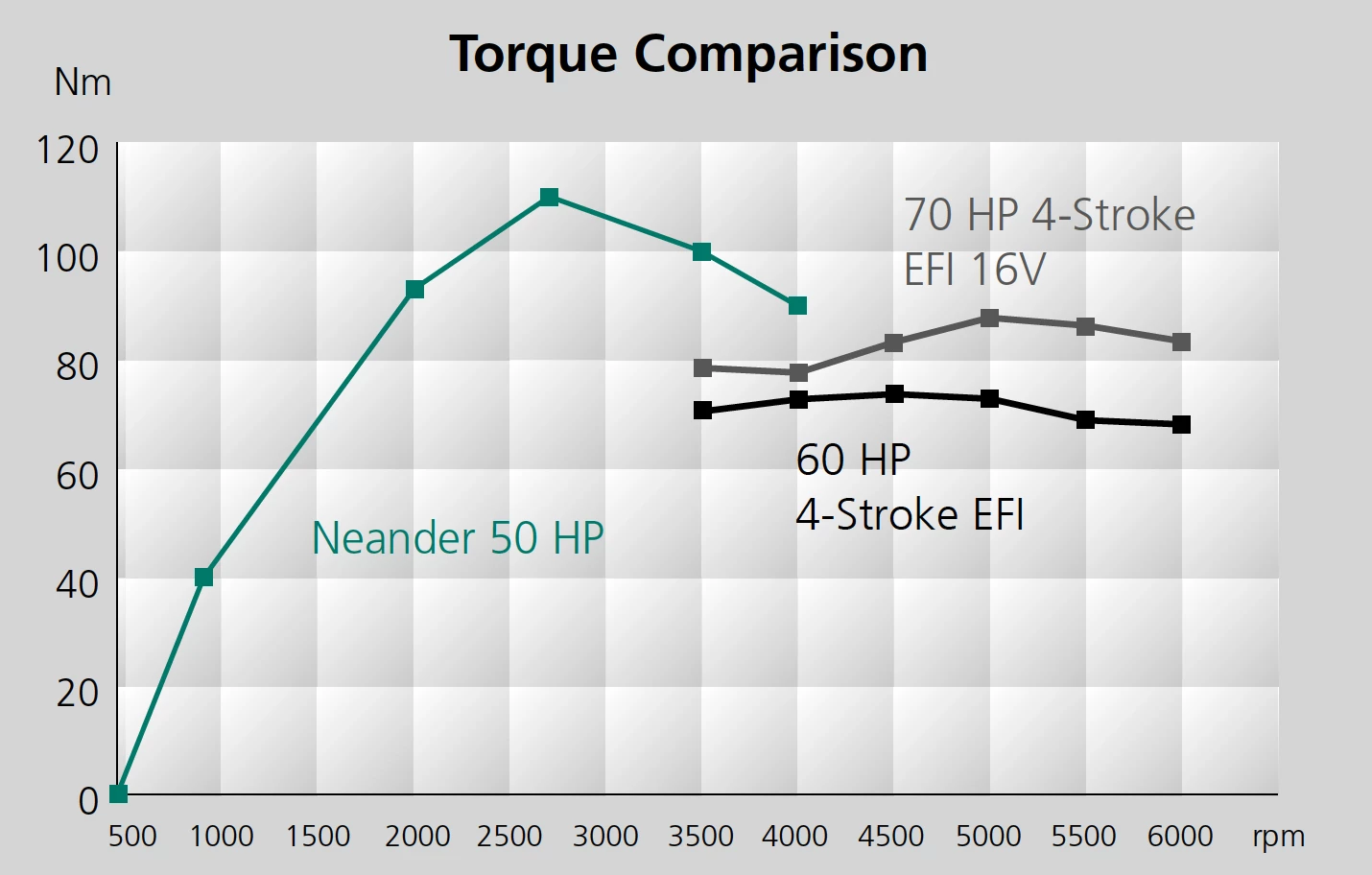
The Dtorque 111 is named for its remarkable low rpm torque, with 111 Nm on offer at 2,500 rpm. That's the type of grunt that will immediately fling a medium-sized boat onto the plane, offering a far different experience than a high revving traditional four-stroke.
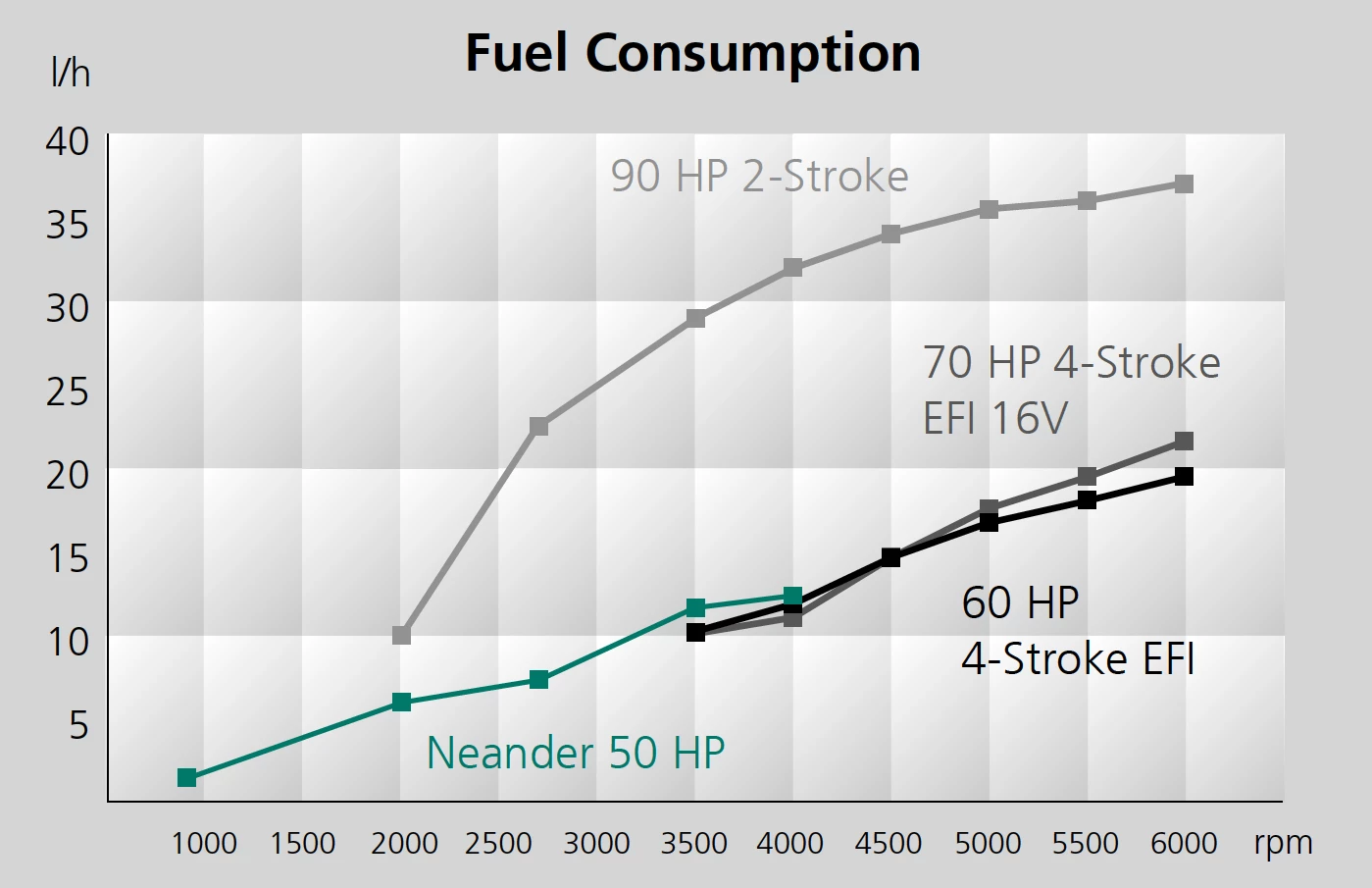
As the world's smallest dieselengine with common-rail fuel injection, the Dtorque 111 delivers impressive fuel economy and exhaust emissions that fall well within the latest EURCD 2 limits. Even at full throttle and full loading, it typically burns less than 12 liters of fuel per hour, half the amount of gasoline outboards of similar performance.
For the past 2 years both Yanmar and Neander have been trialing the pre-series production diesel outboards in six European countries, with some remarkable results.
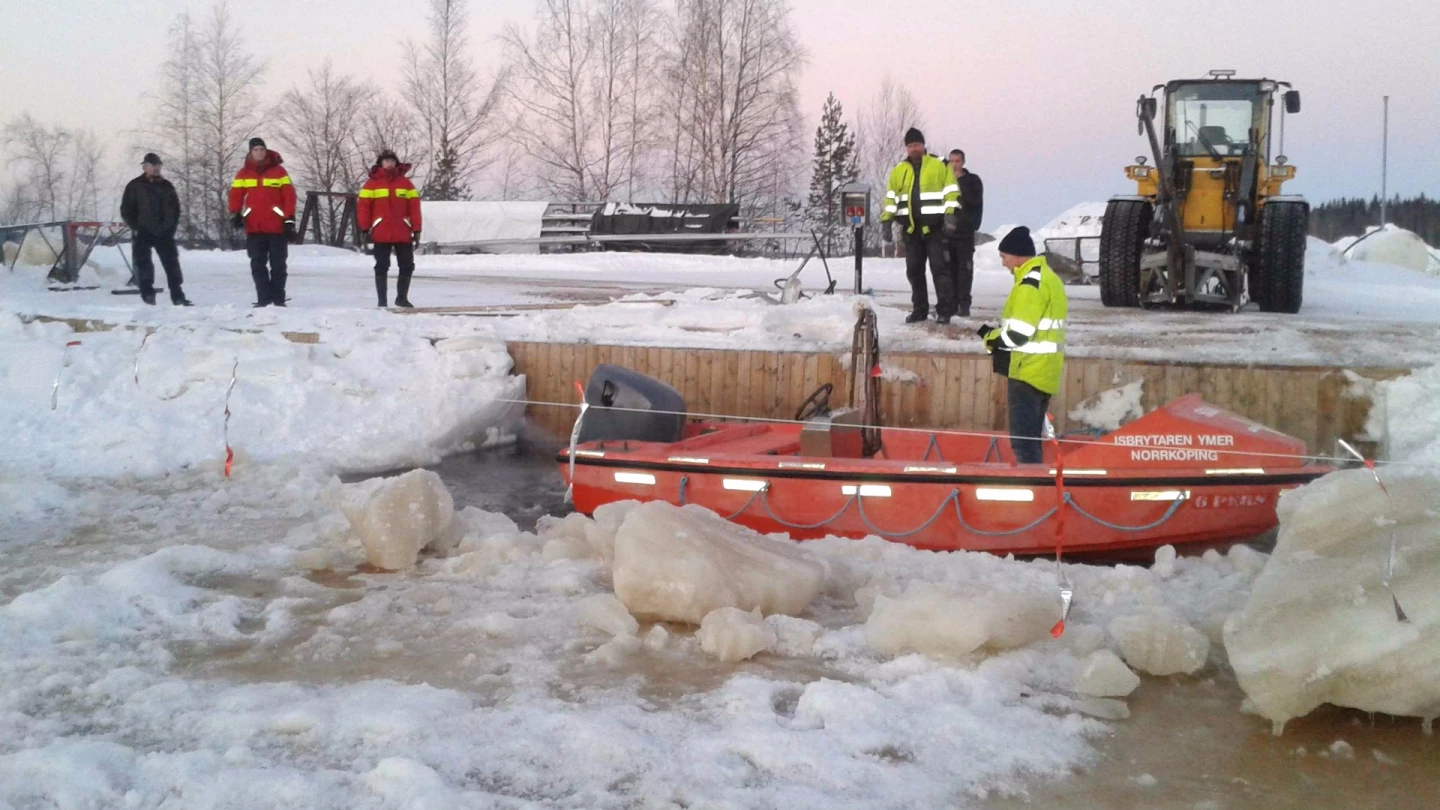
With support from the Norrkust Marina Varvs AB in Båtskärsnä (near Luleå in Sweden), the Dtorque was tested at temperatures of minus 15 degrees Celsius at the Ymer icebreaker.In a port area, which had been freed from ice for the tests, the engine ran perfectly in all speed and load ranges, and started and idled so reliably at these icy temperatures that the Swedish coast guard directly expressed interest in the technology.
"We invited a wide cross-section of our customers around Europe to performance-test the outboards in differingsea states and loading conditions gathering as many opinions as possible," explained Floris Lettinga, Yanmar GlobalSales Manager.
"Our research has confirmed that this product is ideally placed for the light duty commercial market,from wind turbine servicing and fish farming to harbor and patrol duties, water taxis and superyacht charter services.We are confident that the combination of long range, low running costs, durability and low emissions delivered bythis unique diesel outboard will appeal to operators across a wide range of applications.
"With many commercial operators maintaining a single diesel fuel policy to avoid risk offire and explosion, the market potential for the Dtorque 111 is highly diverse. So far, the main option for smallworkboat propulsion has been the gasoline outboard. No longer is that true!"
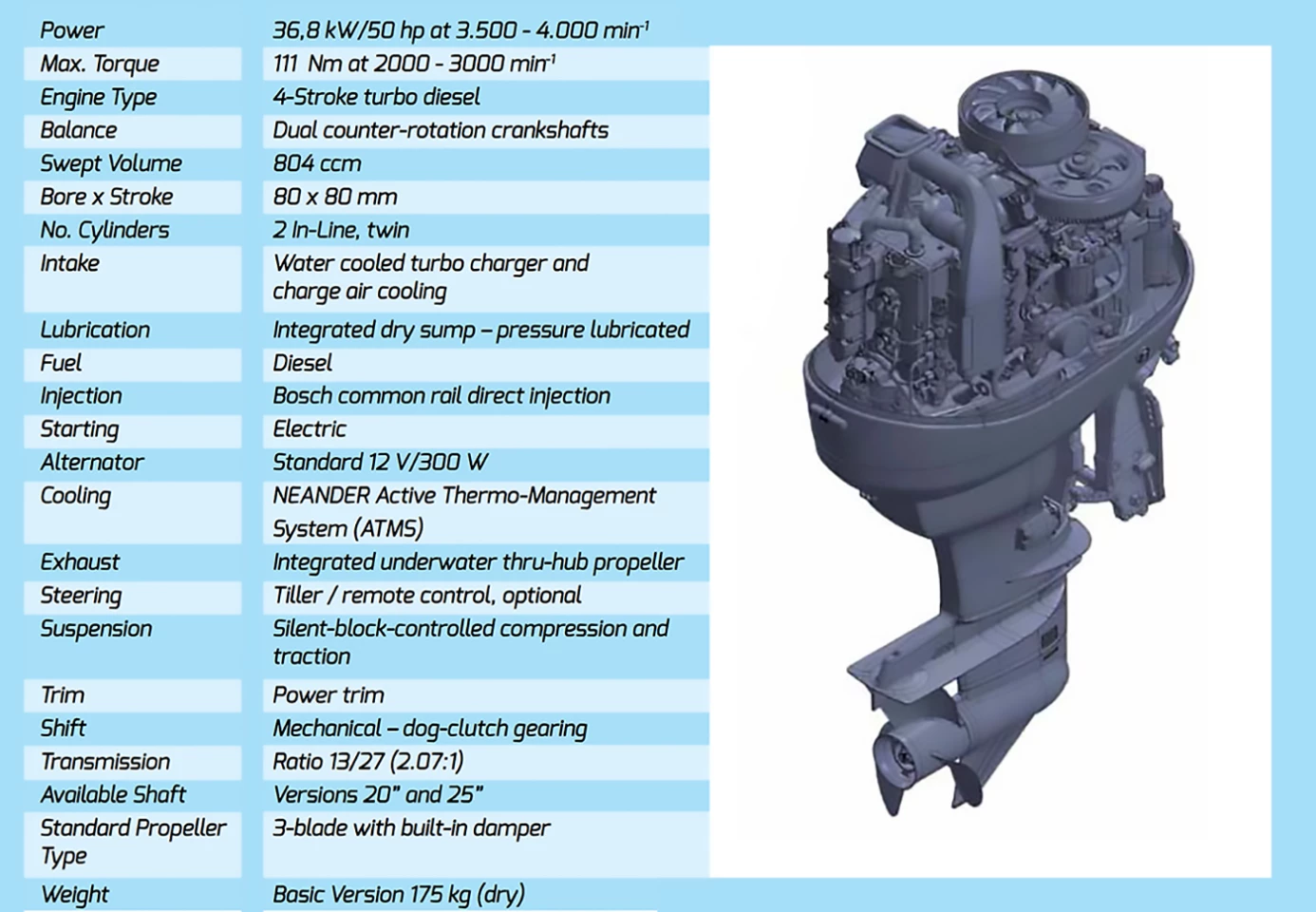
Source: Yanmar
